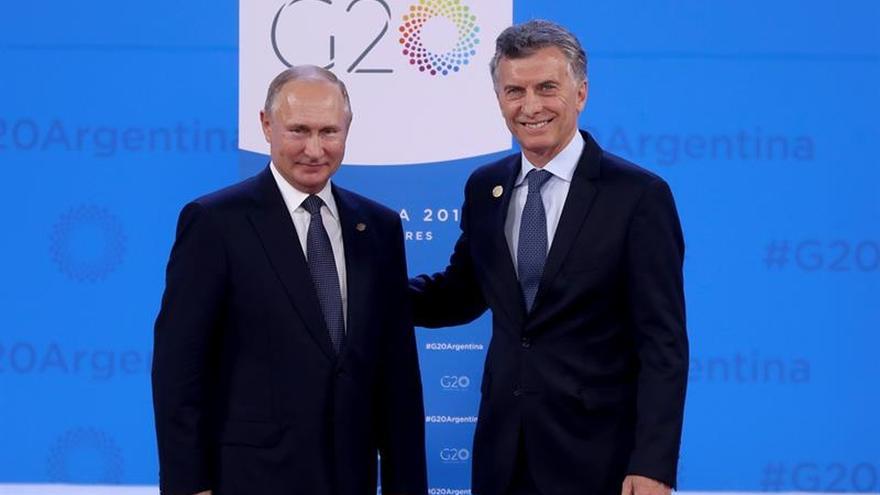Crisis averted — or crisis revealed? According to a Ukrainian official, Russians have reversed the closure of the Kerch Strait, more than a week after opening fire on three Ukrainian ships and taking dozens of sailors hostage. However, the Russians have only returned to the status quo ante in which they interfere with shipping and other naval traffic between the Sea of Azov and the Black Sea, in what everyone else considers international waters:
Ships have begun heading through the Kerch Strait again towards two key Ukrainian ports, a Ukrainian minister has said, nine days after Russia opened fire on three boats.
Mariupol and Berdyansk were “partially unblocked”, said Volodymyr Omelyan. …
Mr Omelyan, Ukraine’s infrastructure minister, said on Tuesday that ships were “navigating through the Kerch Strait to and from Ukrainian ports”. “They are stopped and inspected by Russia as before, but the traffic has been partially restored.”
The BBC’s Jonah Fisher notes what one Ukrainian official calls a “quiet blockade” of Ukraine’s Azov ports. Russia has delayed shipping to and from those ports in the Kerch Strait for weeks prior to its seizure of one merchant vessel and two Ukrainian navy ships. The delay racks up massive costs for shippers, who understandably might not want to pay that much to operate out of those Azov ports under these conditions. Russia wants to use its seizure and annexation of the Crimean peninsula to starve Ukraine of its full abilities to import and export goods.
This explains why Ukraine’s navy might have shown up in the Kerch Strait last week. They probably wanted to ensure the safe and unhindered passage of Ukrainian shipping through international waters — much the same as any other country would do with its navy. (The US Navy has the same mission, expanded to protect global shipping.) The Russians were likely hoping for just such a provocation, although they apparently miscalculated the international reaction to it. Vladimir Putin’s humiliation in Buenos Aires might have gotten the message through to Moscow.
NATO wants to send an even stronger message this week, but might not have a lot of leverage with which to accomplish it:
NATO allies have helped modernize Ukraine’s armed forces and boosted their presence in the Black Sea over the last year, with more ships deployed in the region and more air policing. Three NATO allies on the Black Sea — Bulgaria, Romania and Turkey — are also taking individual measures.
NATO nations, individually and through the European Union, have also imposed economic and other sanctions on Russia since it annexed Ukraine’s Crimean Peninsula in 2014, but there is little appetite among the allies to broaden those measures. …
Of similar concern to NATO is Russia’s new SSC8 missile system. The U.S. has shared intelligence evidence with its allies that the ground-fired cruise missile could give Moscow the ability to launch a nuclear strike in Europe with little or no notice.
Washington says the system contravenes the 1987 Intermediate-range Nuclear Forces Treaty, which bans all land-based cruise missiles with a range between 500 and 5,500 kilometers (310-3,410 miles), and President Donald Trump is threatening to pull out of the bilateral pact.
“It’s urgent that Russia ensures full compliance in a transparent and verifiable way, because the INF treaty is so important for our security,” Stoltenberg told reporters Tuesday.
Welcome to Cold War II: Putin’s Bugaloo. Three US presidents have gotten suckered at times by Putin, but all three eventually had the blinders stripped off. This time it happened sooner than later, although perhaps Trump has still not entirely stripped them off.
Unfortunately for the world, it might require a crippling arms race to remind Putin that Russia simply doesn’t have the capacity to compete with the West, not even in a Russia where oligarchs rather than decaying Politburo members enjoy the good life at the expense of everyone else. Russia would need massive economic and political reform to do so, and if they accomplished that, there would be no need of Putin and his paranoid antics.
We’re back to status quo ante in more ways than one, in other words.





